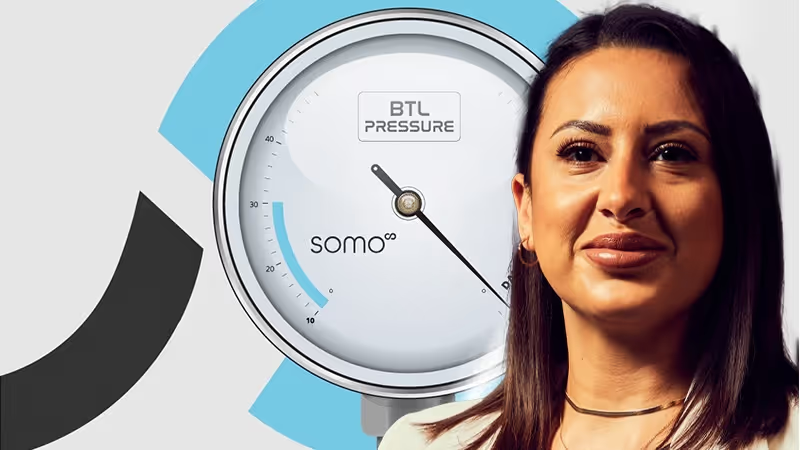It used to be the case that renting was a temporary phase in a young person's life. It gives people some flexibility until their career settled down to a fixed employer and a fixed location.
But today's property prices mitigate against this pattern. Many people are locked into renting far longer, some into middle age and some are even resigned to renting for life.
This situation doesn't quite suit a Conservator Government whose stated aim is to create a home-owning democracy. Is this one of the reasons why the Conservatives have made life more difficult for landlords?
Home owners generally create stable communities, they are less inclined to withdraw their labour, and more importantly for the Conservative Party, they are more inclined to vote Tory.
How to ease the transition to home owning?
This is the big problem facing the Conservatives: landlords are providing most of the housing for young people, which is affordable because a small deposit is needed, whereas a mortgage is much less affordable because of the large deposit requirement.
The absolute maximum mortgage available would be in the region of 90 to 95% of the value of the property (A 90% mortgage, also known as a 90% loan-to-value (LTV) mortgage, is a mortgage to purchase or remortgage a property with a 10% mortgage deposit). In many cases it would be far less than that. Because rents are high renters find it difficult if not impossible to save sufficient funds to scrape together a decent deposit.
London, with an overall average price of £729,802, more expensive than the South East at £480,955, the East of England £399,064 and the East Midlands £262,012, your generally looking at 10% of these figures, so you would need a deposit of around £80,000 in London to by the average home.
So, without the help of additional funds most young people are unable to meet the affordability test, the deposit requirements for a mortgage, leaving them with no option other than to continue to rent. What's more, as rents have increased faster than wages recently, saving up for a deposit has become so much more difficult, though as many have shown, not impossible.
Renting v paying a mortgage
Whilst in theory if a tenant can afford to pay rent and do so consistently and reliably, then that should have a positive impact on any mortgage application. Unfortunately that does not naturally follow.
With house prices at an all-time high, affordability is a problem, but rental prices are even higher in comparison. So one would think that buyers could argue with some justification that if they can afford the high rent, then they can easily afford an equivalent mortgage.
FCA rules
Lenders are bound by the FCA (Financial Conduct Authority) rules which take into account all round income and deposit payments. The rules are there to ensure that mortgage applicants can still afford keep up their mortgage repayments if interest rates are to rise, which is even more likely as of now in an inflationary period.
Owning a house also entails additional costs, unlike renting where the landlord is responsible for all repairs. Repairs, maintenance, buildings and contents insurance are all costs which most renters do not have. A typical mortgage stretches out 25 years into the future, so assessing costs over that period is a different matter than meeting costs of a short term renting period.
It all boils down to the fact that most mortgage lenders won't take into account a person's ability to pay their rent on time, every time, as proof positive that they can afford to meet an equivalent mortgage repayment.
Should rent payments count towards a mortgage application?
People are beginning to question the fairness of the present system. Why should not renters be able to point to a history of reliable payments as proof they can afford a mortgage?
Recommendations made by the think tank Policy Exchange says that counting rent payments towards mortgage applications should be adopted by the government if it really is serious about helping people to get onto the housing ladder.
It is common for rent payments to be higher than what the actual mortgage repayments would be, with a standard deposit, for the property being rented out. This leads many applicants to, understandably, think that if they can afford the monthly rent, they can also afford an equivalent mortgage.
While this may well be true, mortgage lenders have to follow the FCA rules to assess the affordability of home ownership more thoroughly than purely looking at a rent payment record.
There is more focus on income than the currently rent payment, and lenders are bound to ensure that applicants are still be able to afford the mortgage repayments following an interest rate rise of up to 3%, which has been the actual case for many recently.
Lenders also need to consider those additional costs of owning a home: maintenance, building insurance, appliances breaking down and possibly ground rent. It’s difficult to forecast ongoing affordability over 25 years, based on a few months or years of renting.
Affordability
Although the amount paid in rent won’t have a direct impact on the lender’s decision, lenders will look generally at someone's financial profile to establish how they have managed their existing commitments. A typical loan size offered would be around 4.5 times income, and a joint mortgage will usually allow more , so long as both applicants have a decent income.
Most lenders tend to favour someone being in stable employment, but it’s still possible for self the self-employed to get a mortgage, though accounts records will be needed as well as possibly a specialist lender.
How to get a mortgage as a tenant
As a tenant a specialist mortgage broker with experience in this area will be give the best chance of finding the best terms available. They will help with completing and submitting necessary paperwork: usually, (1) proof of ID (2) three months’ bank statements, (3) credit score (4) address history, (5) rent payment history and any other documents they require.
Credit scores can be obtained from the credit reference agencies, downloaded online. A broker specialising in mortgages for tenants and the self employed will compare available deals such as the low and no-deposit options that launched in 2023, plus guarantor options from the specialist lenders.
A briefing paper produced in August 2022 by Gerard Lyons, a senior fellow at the Policy Exchange think tank, argued that changes needed to come to help 'turn Generation Rent into Generation Buy". It identified the biggest hurdles for first-time buyers as the deposit and the buyer's annual income assessment.
'The Government needs to seize the initiative in the housing market and shift its policy focus. If it does then there is every reason to expect future success, with more houses being built and with generation rent becoming generation buy as more first-time buyers are able to access the mortgage finance that they need,' the report stated, and indeed some changes have been made since.
The First Homes scheme: first-time buyer's guide is a scheme where developers offer these homes to first-time buyers with at least 30% of the market value off the price. Unlike shared ownership, there’s no rent to pay. Every home that’s sold is valued by an independent surveyor to make sure the discount is based on actual market value. New build First Homes cannot cost more £250,000 (or more than £420,000 if the property is in London) after the discount has been applied. The local council can lower this maximum price. New owners can decorate or improve the property but if they want to let or sell your property, there are restrictions, the First Home scheme rules apply.
Saving for deposits to buy
Saving up for a deposit is especially difficult for those paying out a large portion of their salary in rent each month. So, Lyons says it should be made compulsory for people with a long history of paying rent on time, perhaps over 'three years' to be able to use this as evidence to improve their credit score.
Conversely, will a poor rent payment record affect an application for a mortgage?
Landlords and agents can record rent payments and send them to credit reference agencies. Several landlords and letting agencies have signed up to rent reporting initiatives, such as The Rental Exchange Scheme.
This records rent payment data, including late payments and arrears. Experian launched the Rental Exchange Scheme in 2016 to help private tenants improve their credit scores and pay their rent on time. Late rent payments impact a tenant's credit file. However, most private landlords don’t report a positive rent payment history with a credit reference agency.
Lyons says in his paper: 'Sensibly, ensuring financial market stability has been a key focus since the 2008 global financial crisis. That should remain a key focus.
'In the area of mortgage finance, though, while ensuring that regulatory controls on lending or borrowing do ensure stability, it is important to re-examine these to ensure that they do not unnecessarily curtail innovation.
'Such measures should be re-examined to ensure that they do not have the unintended consequence of constraining the ability of creditworthy borrowers to access finance, by for instance, placing excessive restraint upon lenders.'















.avif)
.avif)




















Comments